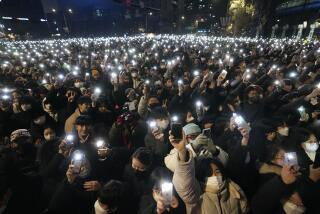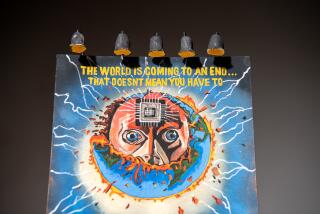Prepare for a 10-Year ‘Silly Season’
- Share via
New Year’s is over, but consumer behavior and marketing analysts needn’t put the party hats away just yet.
Jan. 1 opened the final decade before the end of the millennium. Historically, we are in for a 10-year “silly season” that will build in intensity as we approach the year 2000.
The end of a decade typically serves up popular fads such as the “Age of Aquarius” of the late ‘60s, but the twin zeros of a century can deliver more lasting social phenomena. Western Europe spent the better part of the 1890s contemplating the century’s end. The French even gave their anxieties a label-- fin de siecle. The term survives today, synonymous with the turn-of-the-century mood of sophistication, world-weariness and fashionable despair.
But we reserve our greatest dread for millenarian endings. The last time we crossed a year with three zeros, a horde of millennium-struck European peasants disrupted a century of social history, anxiously awaiting the Apocalypse of biblical prophecy.
No one expects this sort of calendar-induced hysteria to recur today. The end of the Cold War has made a nuclear apocalypse less likely now than at any time in the last 30 years.
Yet the coming millennium constitutes a wild card of consumer attitudes and popular opinion. Interest in religion will certainly rise, and with it one can expect a boom in TV evangelism.
More seriously, the millennium may also have a decidedly optimistic impact on secular thinking. Francis Fukuyama, a policy planner for the State Department, caused a stir in Washington last year with an essay published in the conservative journal National Interest and titled “The End of History?” Fukuyama predicted that the 20th Century will end in the defeat of fascism and communism, and the triumph of Western liberalism. He called this triumph “the end point in mankind’s ideological evolution.”
Writing in reply, Harvard University Prof. Samuel P. Huntington decried the intellectual trend of “endism,” arguing that history is too unpredictable to be boxed into finalities.
Nonetheless, another “endism” tract appeared last year in New Yorker magazine. It was Bill McKibben’s “The End of Nature,” declaring that the natural world is about to become no more than a relic.
Beneath the intellectual debate, the millennium is entering the consciousness of mainstream America. President Bush mentioned the millennium in a recent speech, and even the popular etiquette columnist Miss Manners has subtitled her latest book a “guide for the turn of the millennium.”
On the consumer level, the millennium will become a theme of retailing, a stimulant to sales as well as silliness. Our present anxieties about the coming millennium will be released in frivolity. New Year’s Eve 1999 will be a boon for travel agents booking tours to holy sites and New Age “power spots” all over the world. From Jerusalem to Ayers Rock in the desert of Australia, reservations are already being taken.
More to Read
The biggest entertainment stories
Get our big stories about Hollywood, film, television, music, arts, culture and more right in your inbox as soon as they publish.
You may occasionally receive promotional content from the Los Angeles Times.










